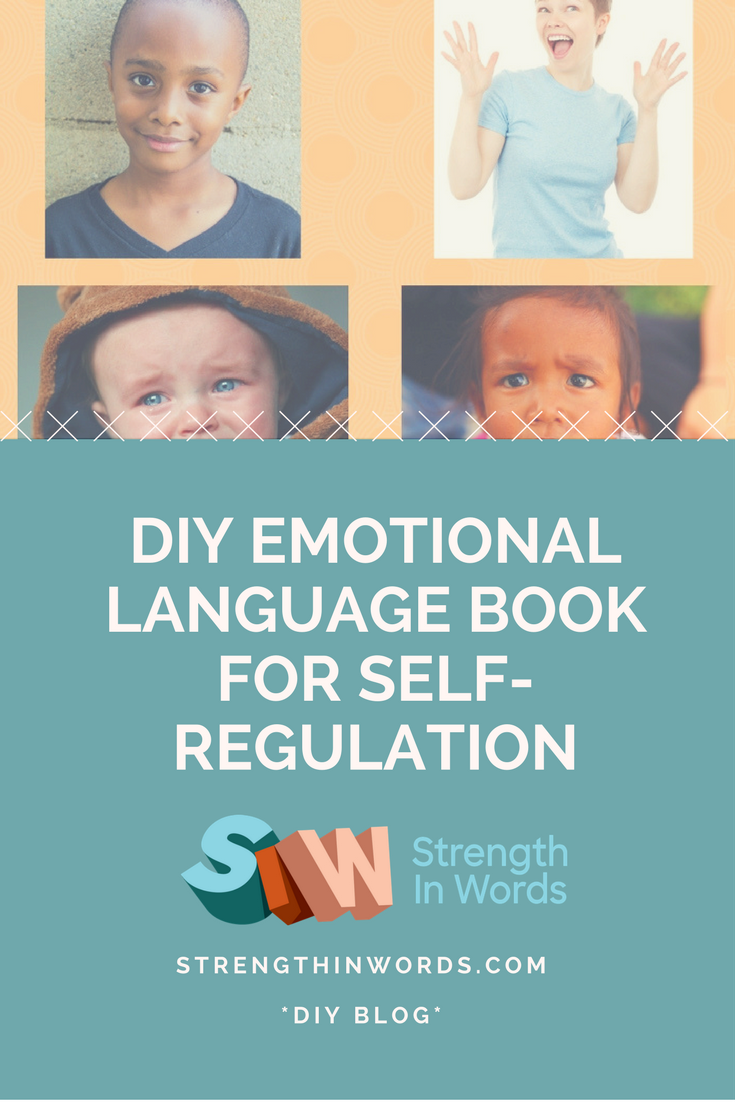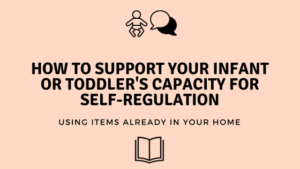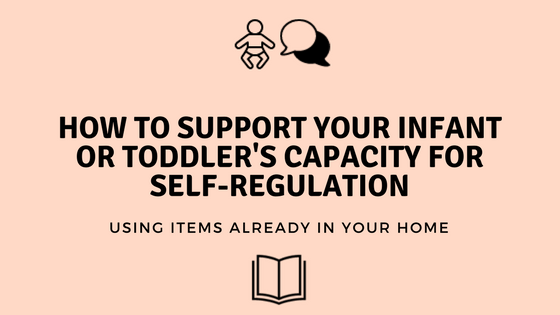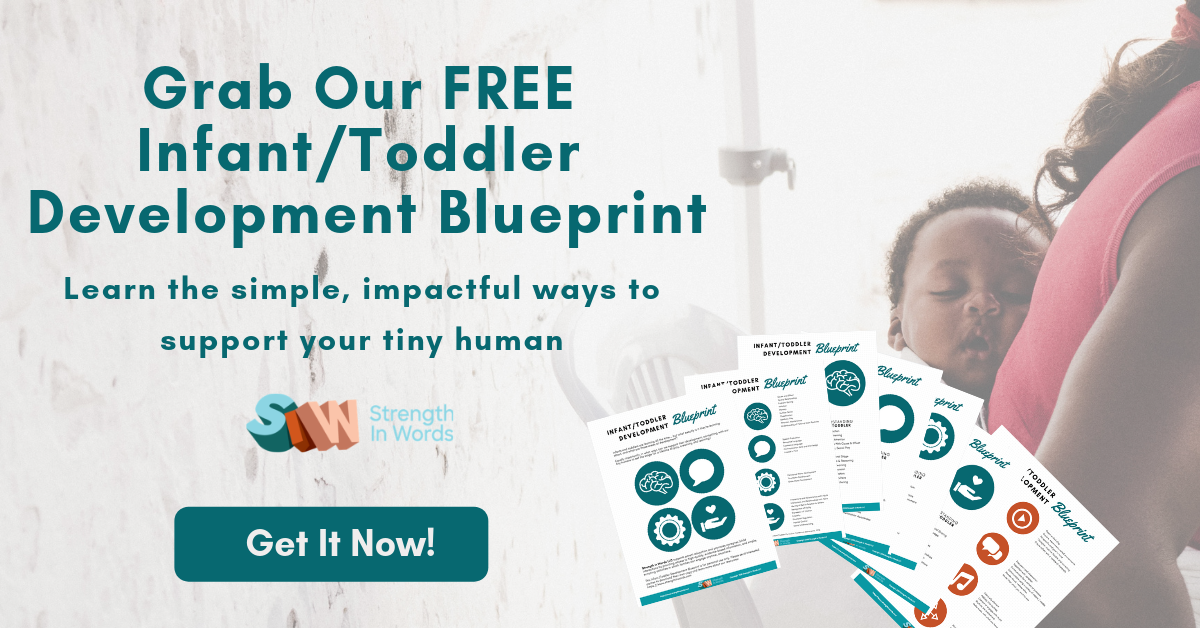It’s not easy to stay “in control” all the time – especially as the parent of a young child. I am so happy to have a community of parents to bounce off these notions…
Because now I know that so many of us have had the unfortunate experience of being sleep deprived and yelling at our helpless infants, or trying to multi-task when our toddler keeps screaming the same crazy phrase in the hope that will get our full attention.
Trying to regulate our own emotions as parents is really tough… but realizing that to step in the shoes of our young children is to be, by nature of their age and stage, completely dependent on us to help them develop the ability to regulate their emotions… that’s big.
Most of us have a sense of what it means to be in control of our emotions. As adults, we have the tools in place to *mostly* stay within the confines of a “regulated” state.
Our infants and toddlers are not so independent. Just as we must learn to walk, to speak, to learn – we also must learn to have control over our emotional responses to the world.
In infancy and beyond, our physical state, our behavior and temperament, and our cognitive abilities are all at play when it comes to self-regulation.

Download Your Mini Book!

We always encourage you to make your own play materials - but here's a pre-made freebie to save you time!
When you download this little book, I will add you to my email list, where I'll keep you updated with relevant information if I believe there's a legitimate interest. Learn more by visiting our Privacy Policy!
Our young children learn – through imitation, practice, observation – how to get their needs met, and we, as caregivers, are the primary enablers and teachers.
In the corresponding podcast episode, Regulate Yourself! What is Emotional Regulation?, we discussed the areas that influence the development of emotional regulation, and a number of ways to facilitate and support that development.
One of the ways to support our young child’s development of emotional regulation – which can be classified as part of both social/emotional development and cognitive development – is through the modeling and use of emotional language.
I modeled an example of an activity (specifically through the lens of a musical and early literacy experience) to model this type of language, which also hits on the idea that caregivers must recognize that not all emotional responses look “nice” – and that’s ok!
Don't Miss our Corresponding Podcast Episode!

Materials to create your DIY Emotional Language Book
- A search engine (to locate at least 4 images of various emotions such as happy/sad/excited/mad/tired/hungry) and printer, OR a nice marker and some artistic talent! You may have already downloaded these images to create our “DIY Feelings-Faces Plates!”
- For each emotion you choose, locate 2-3 images that represent objects or influences from the environment that might have elicited that emotional response (for instance, your “happy” page might have smaller images of a favorite toy, a favorite place, and/or a favorite person)
- Paper, a small binder and sheet protectors in which to place each page
Instructions to create your DIY Emotional Language Book
- Put your Emotional Language Book together (or just print off your free download from below!)
- Listen to the corresponding episode Regulate Yourself! What is Emotional Regulation? for a great way to set the activity to music while you read through your book, asking questions on each page, like, “where is the sad boy? Why do you think he’s so sad?”
- Allow your little one time to “choose” one of the images (through eye gaze, a pointing gesture, vocalization or verbalization, etc) or simply indicate which one you think it might be – simply modeling your own best guess and opinion
- Remember that the purpose of this activity is not to ensure that your child makes a choice or even understands the idea that the pictured child feels a certain way – this activity is meant to practice associations (when this happens, I often feel sad), discuss emotional words and use the vocabulary of emotion, and learn the practice of making inferences. You model empathy and also help to develop your little one’s ability to take another’s perspective, a big part of “theory of mind.”
Ages
- An infant and even a toddler will have trouble taking another person’s perspective and imagining that he might be feeling a certain way. Focus on the activity as an opportunity to encourage imitation, give your little one practice hearing the vocabulary of emotions, and encourage her powers of observation.
- A young infant can sit back and listen to you speak or sing the words, and enjoy the emotionally bonding experience of the interaction
- An older infant or toddler will pay more attention to the content of the vocabulary, and be more cognizant of how it applies to her life and experience
- Be aware that your child might try to communicate to you about herself using visuals – young children often use visual supports in their environments to express their desires, needs, thoughts, or opinions!
This post contains affiliate links. All activities described by Learn With Less assume close and continuous supervision of the child by an adult.
Download Your Mini Book!

We always encourage you to make your own play materials - but here's a pre-made freebie to save you time!
When you download this little book, I will add you to my email list, where I'll keep you updated with relevant information if I believe there's a legitimate interest. Learn more by visiting our Privacy Policy!


Just downloaded this on to the iPad. What a fantastic tool for the discussing emotions with little ones. I care for a few that are vey much in the "can’t control their emotions stage" so often lash out or tantrum. I look forward to reading this with them and opening up discussion. Thanks for sharing on #ToddlerApprovedTuesday
I’m so happy to heart that! There’s no magical cure (as we know, it’s all a process!) but it’s certainly a tool!